ZWISCHEN-
WÄSCHEREI
Installation + research + public event
Zentralwäscherei Zürich
30.6.2023 – 1.7.2023
PERFORMANCES Marie Delprat, Aline Perino and Nina Pfüller, Iulia-Andreea Smeu, Marta Allocco and Alex Ferro, Miriam Seifert, Sushi and the Barn Cheese, Rat Girls, Arthur Pointeau, xtfxtfxtf, dj hund
EXTERNAL TEXTS Stadtrat Daniel Leupi, Grün Stadt Zürich, ETH prof. Silke Langenberg
EXTERNAL WORKS Baubüro Zitrone, Paola de Martin, Gabriella Gonçalles, Martin Kohlberger, Pauline Sauter, Elischa Bischof, Marina Mezzasalma, Paula Keiner and Samuel Giblin, Alexander Bruderer, Maura and Tatsuya
GUEST TALK ETH prof. Christian Schmid
︎ SUPPORTED BY Migros-Kutlurprozent, Stadt Zürich, sia, Electrolux
︎ IN COLLABORATION WITH Architektura and d-arch film festival



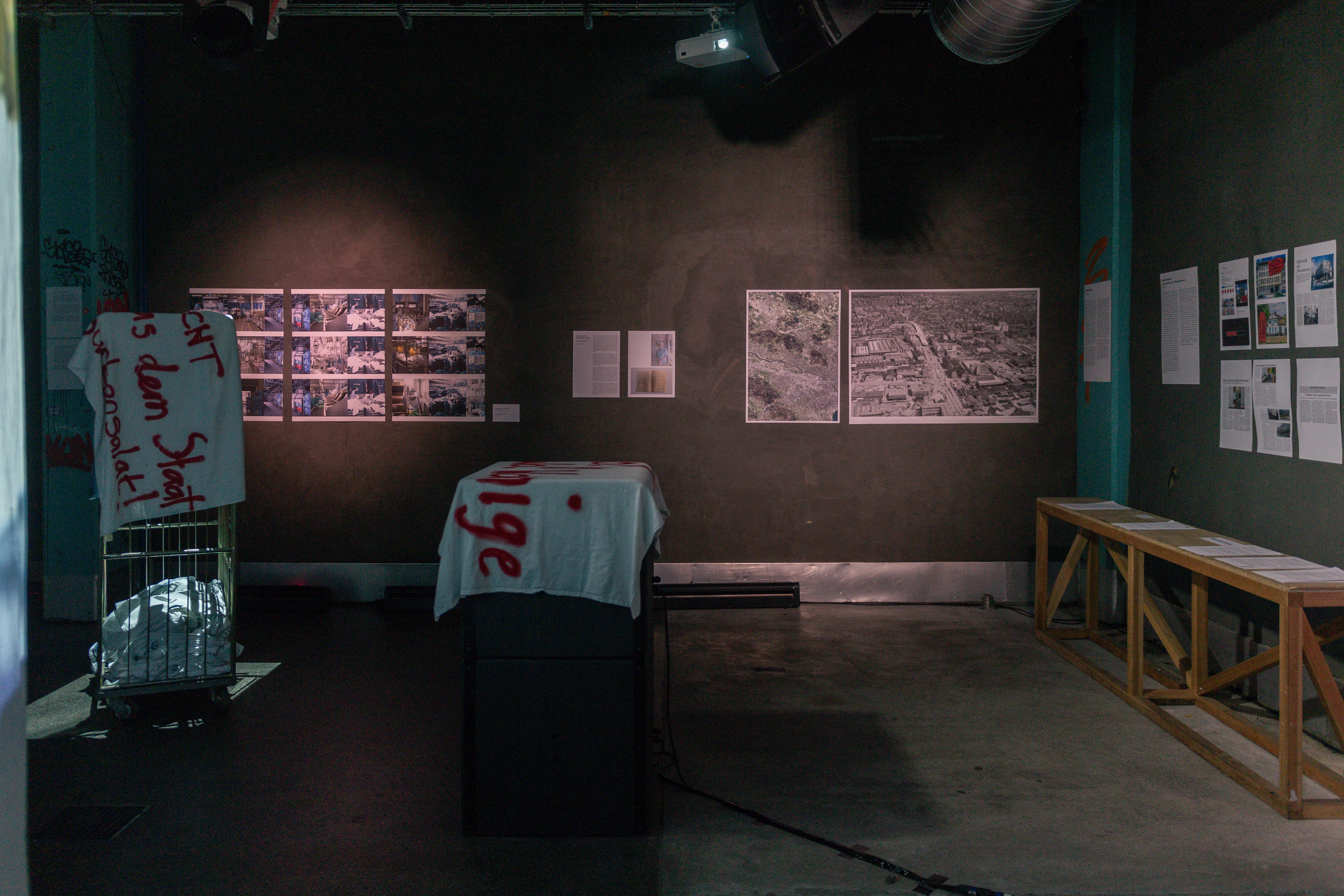

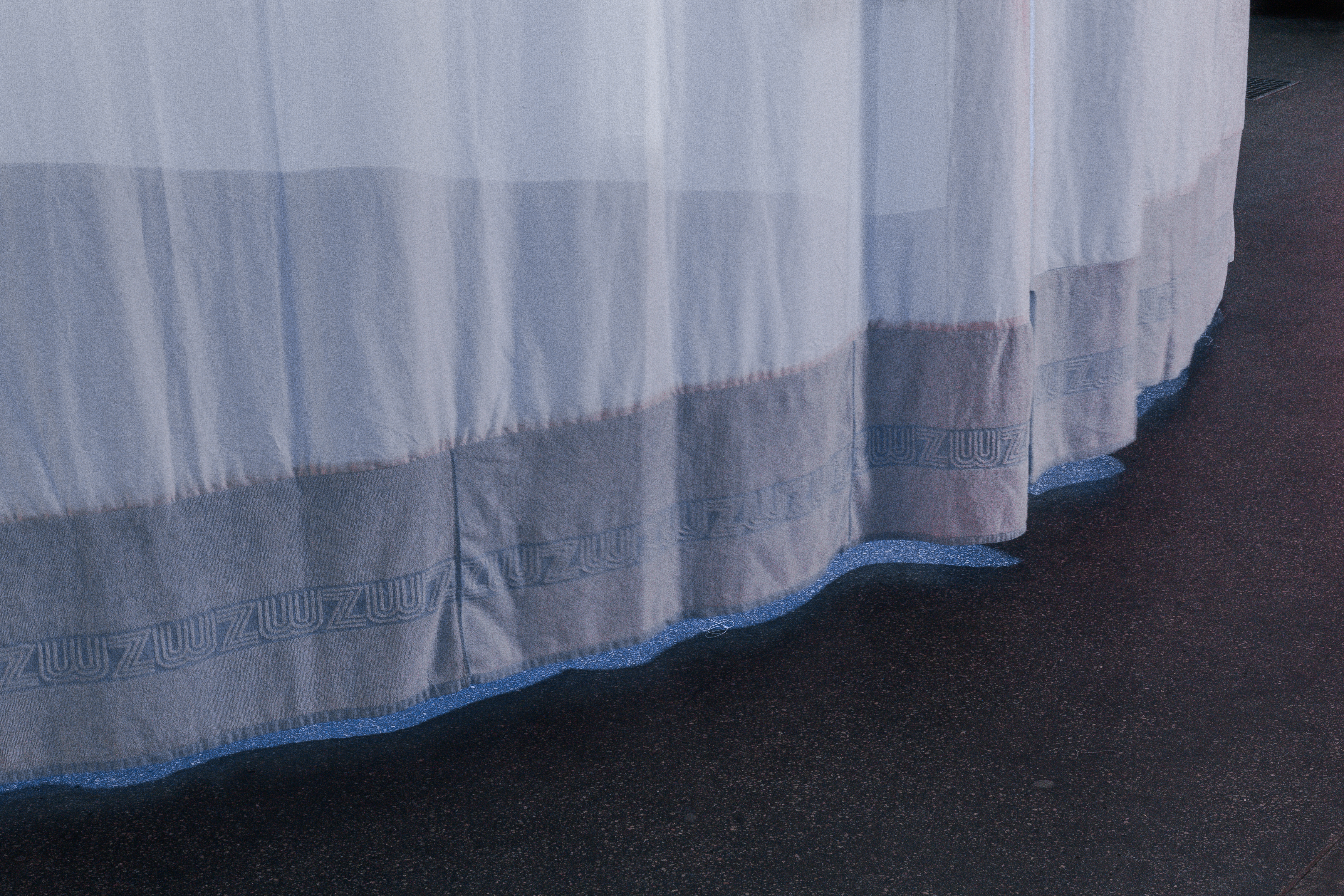


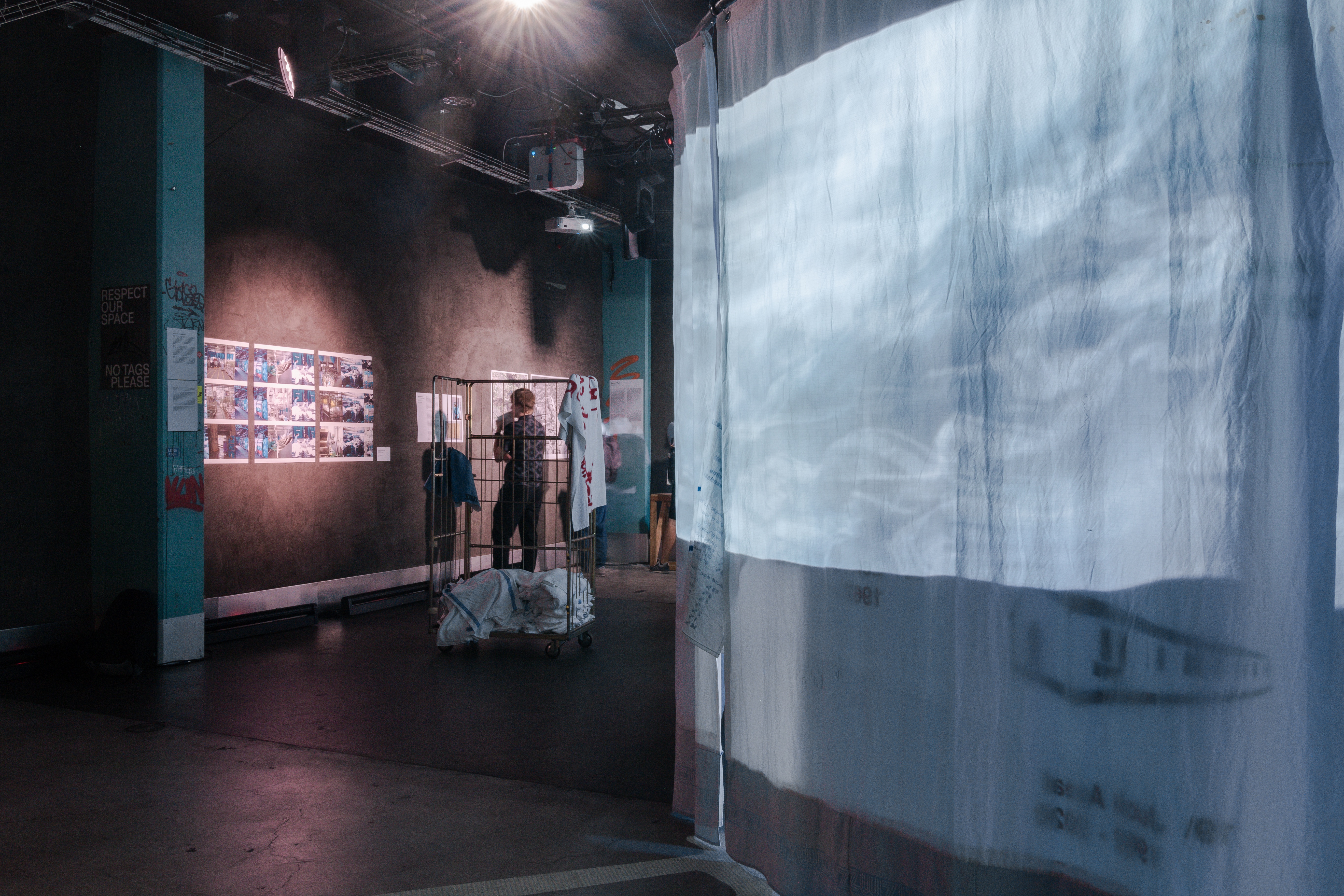
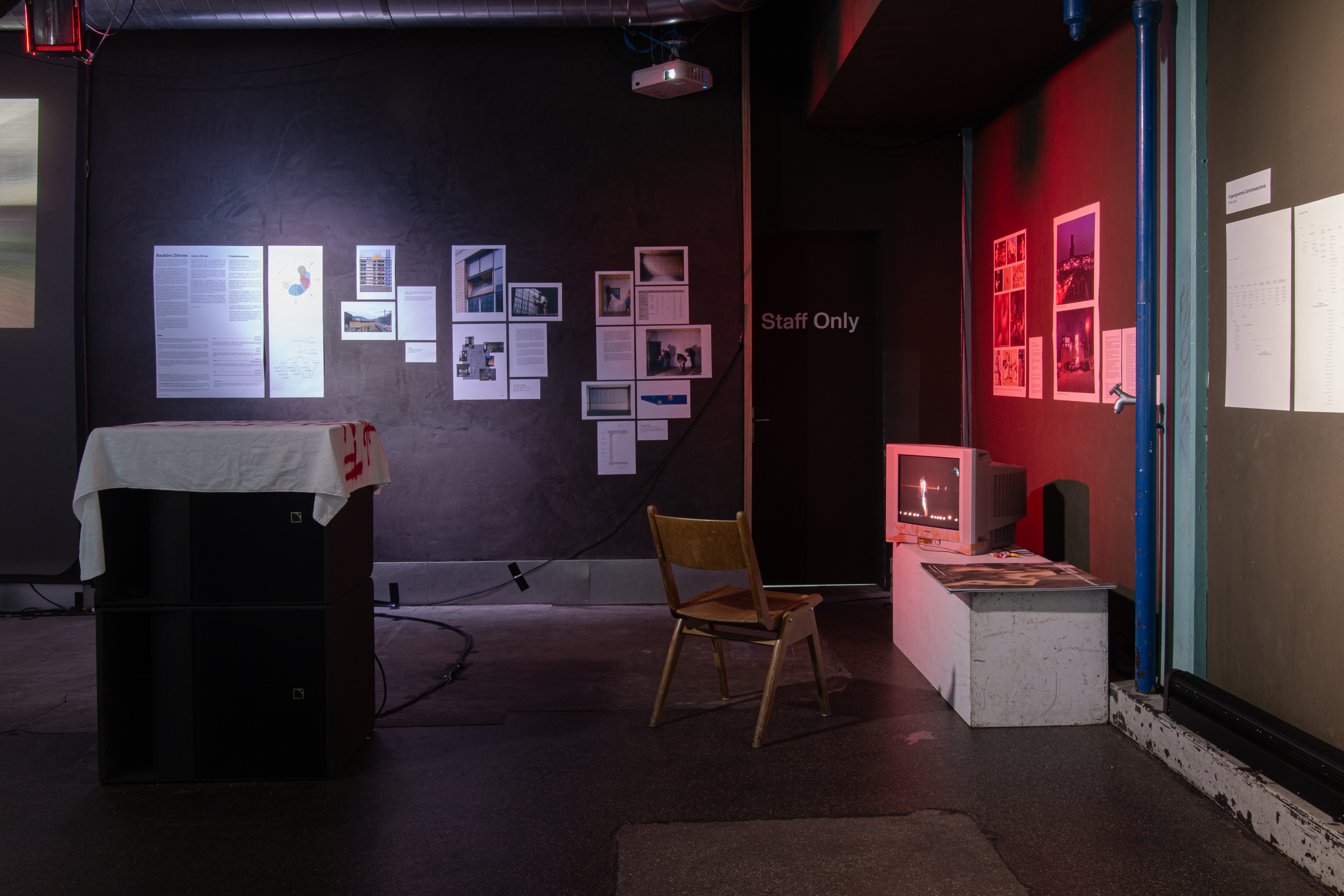

Own Source ©
The project investigates the politics of interim use in Zurich, delving into the city's history marked by alternative social movements, such as the 1968 and 1980 youth protests. These movements have notably shaped the connection between the city's residents and its urban landscape. Squatting in Zurich has left an imprint on the city’s identity. However, the recent rise in interim use, managed by both public institutions and private real estate companies, coupled with the simultaneous decline in squatted urban spaces, reveals underlying structures of excessive regulation on alternative spaces, unsustainable city planning, and the deliberate facilitation of gentrification.
The exhibition space itself becomes a lens and an entry point, shedding light on the ongoing processes of urban transformation mentioned earlier. Zentralwäscherei Zürich currently provides a diverse cultural and political program, offering a safe space for local communities. However, despite its current role, the space is scheduled for demolition in the next few years, as it is currently designated for interim use by the city. What persists in the collective memory is a space that once operated as a laundry factory, predominantly employing female workers with a migration background in the industrial neighborhood of Kreis 5. The identity of Kreis 5, shaped by its former migrant residents, is now at risk of fading away, making way for an urban stage catering to a creative class with wealthier socio-economic background.


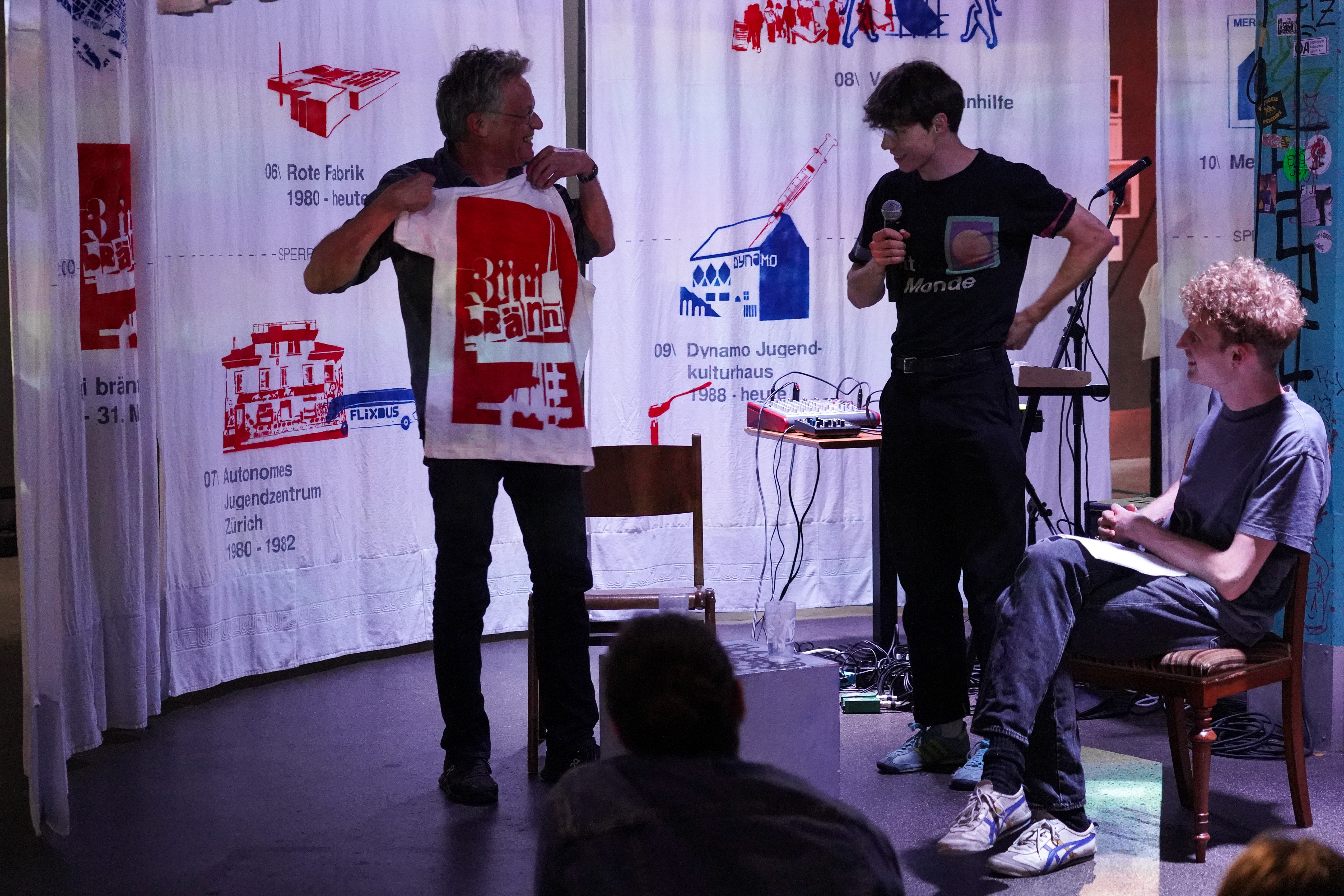




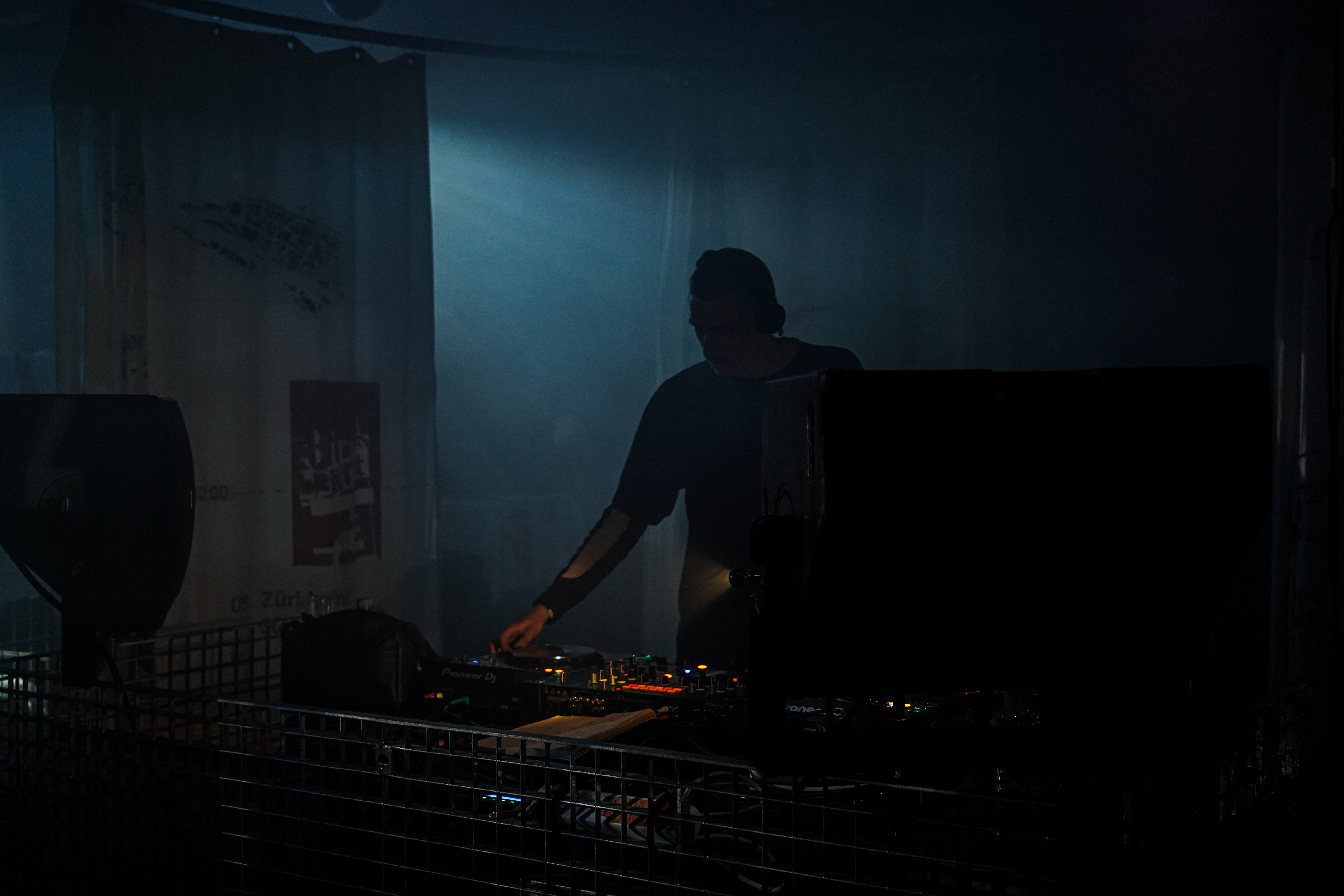
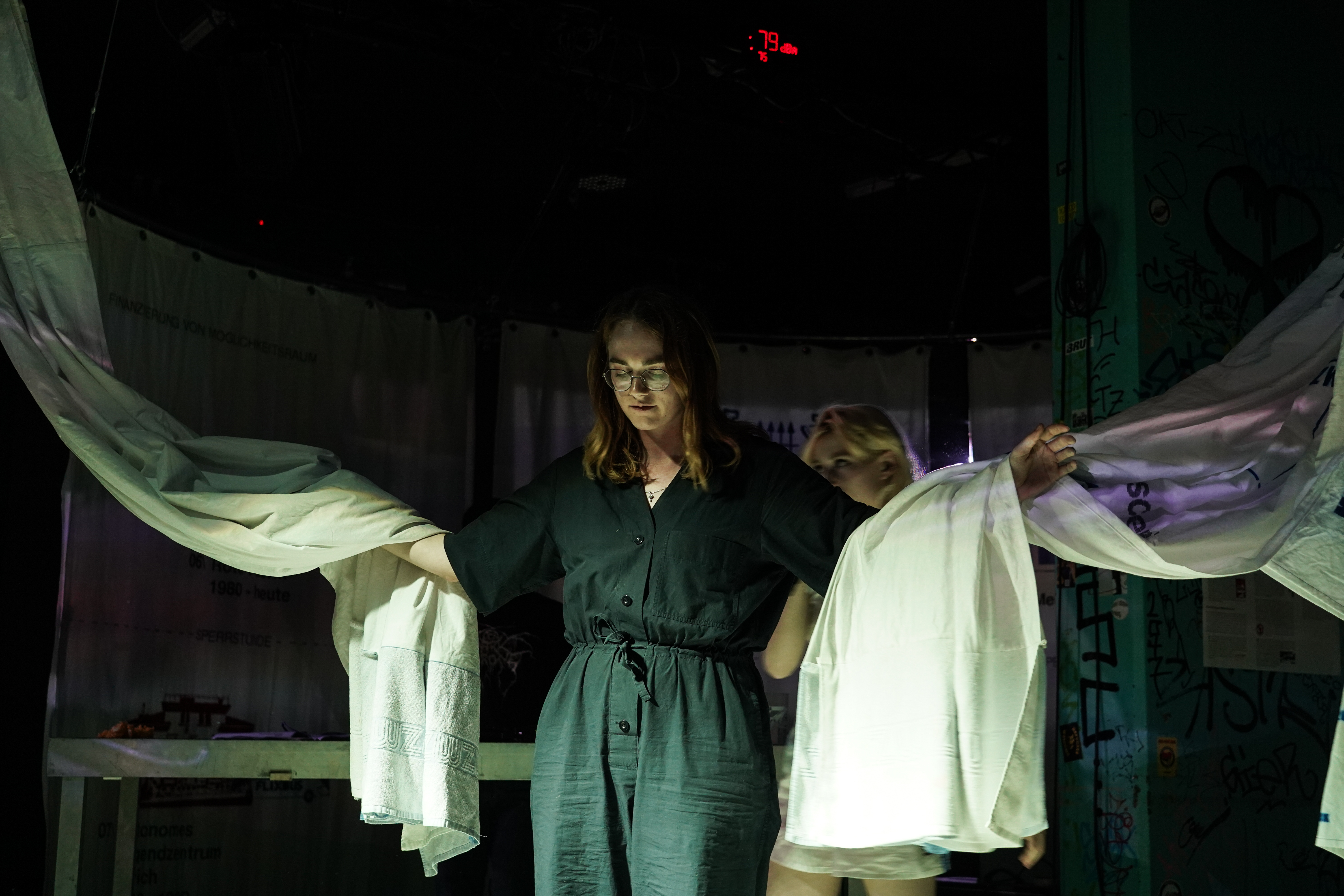

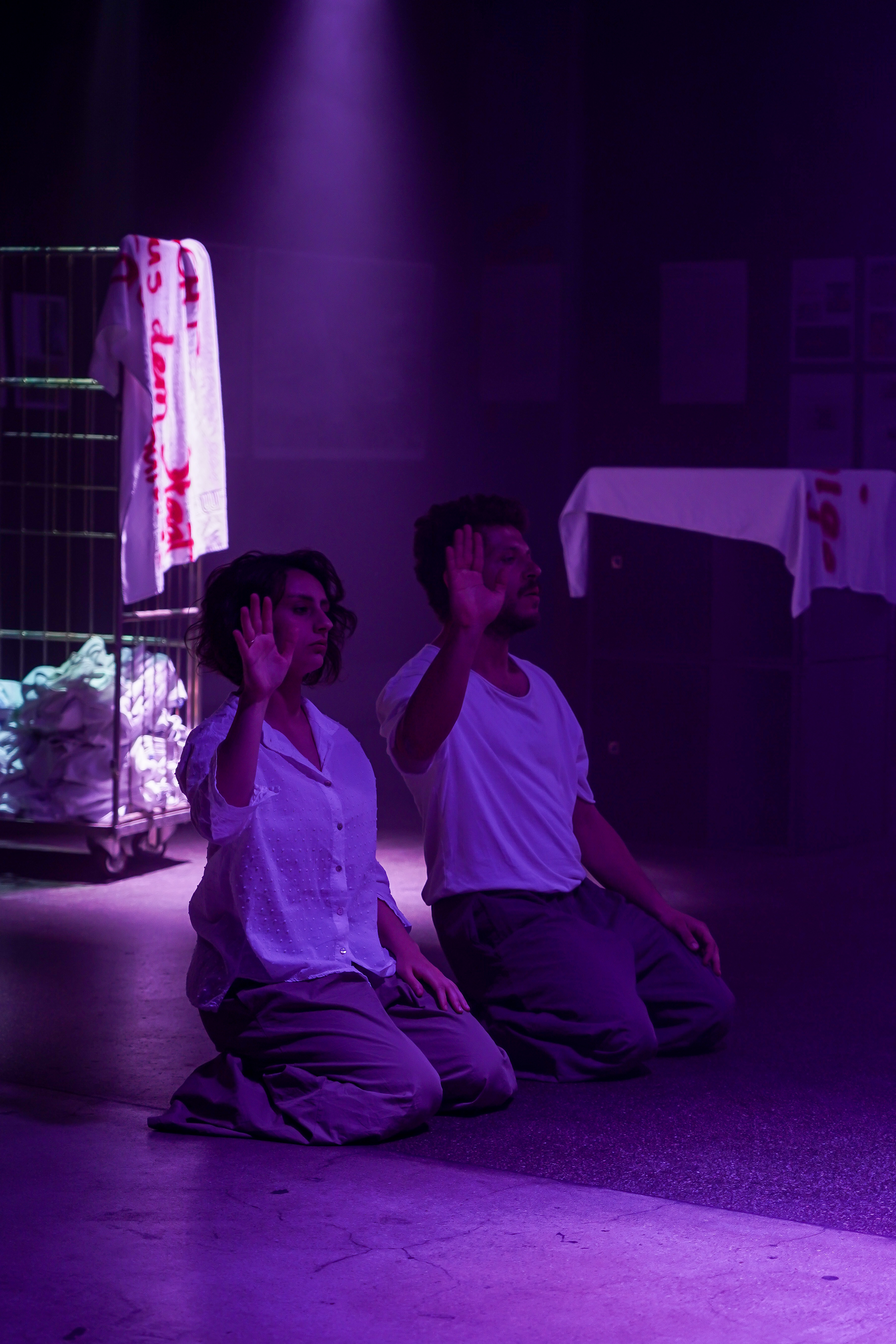
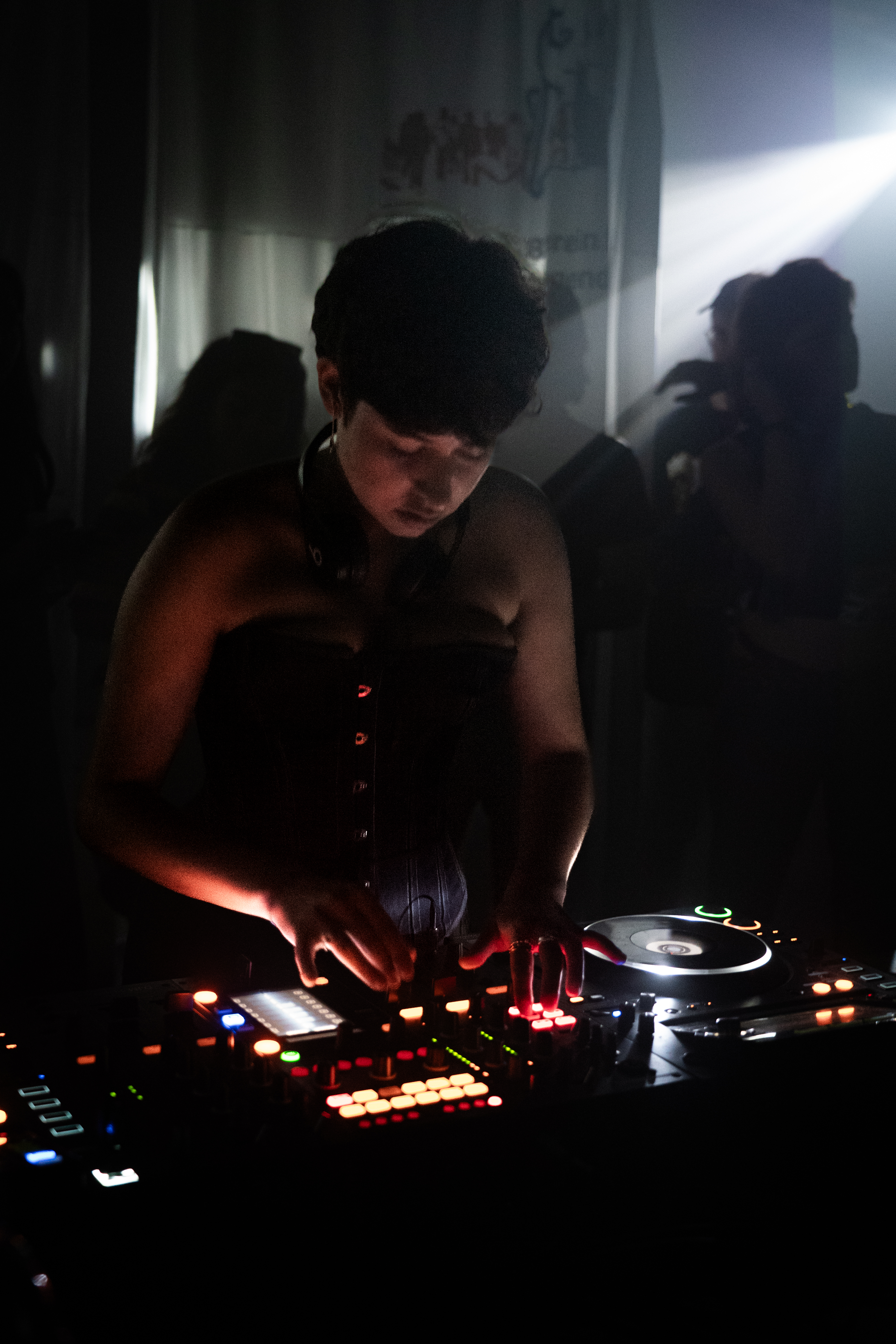
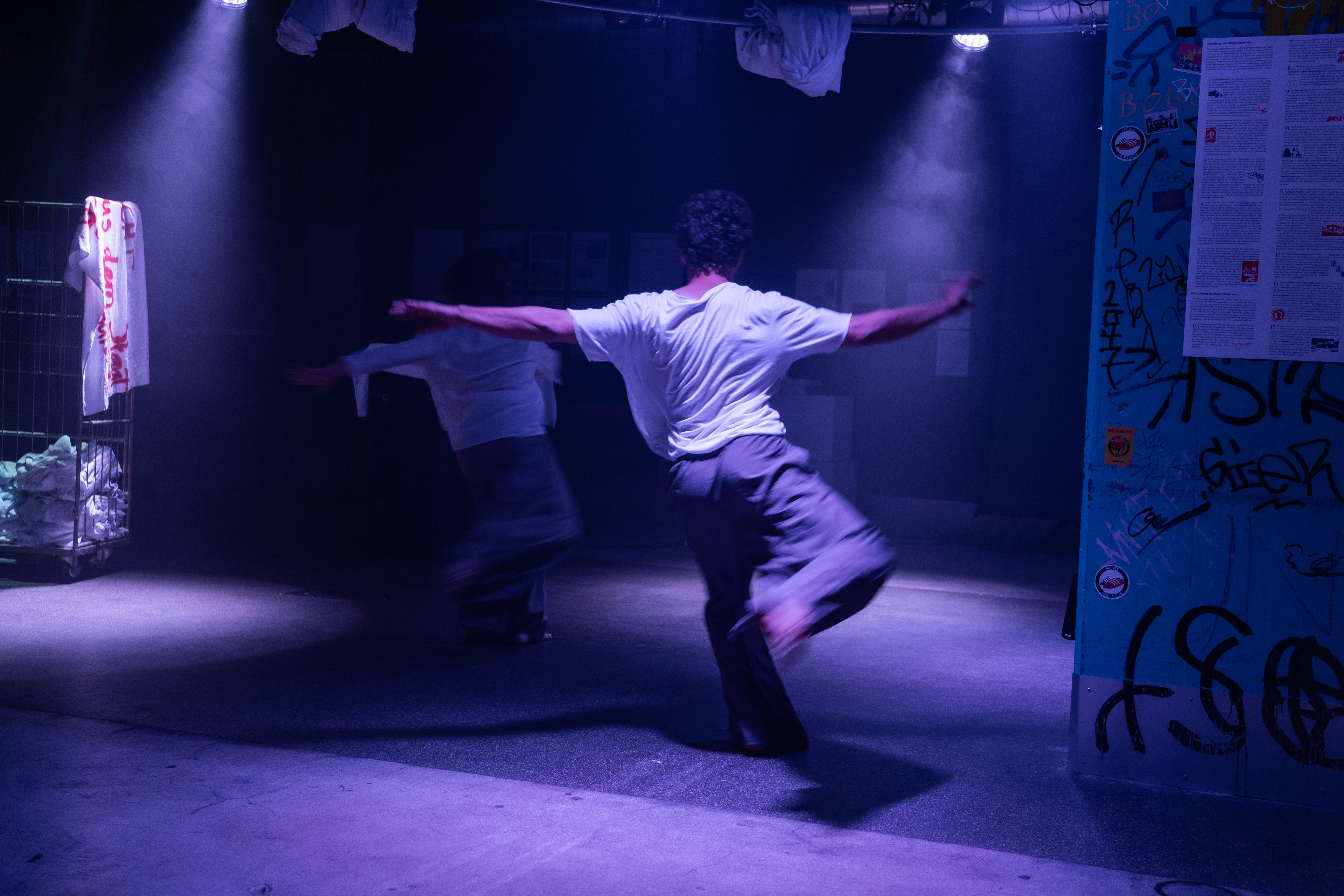
Credits: Ella Zaretskie ©
The installation comprises a 5m wide circular curtain, crafted and stitched from fabric remnants procured from Zentralwäscherei Zürich (ZWZ), which recently relocated to the outskirts of the city in Regensdorf. On the interior, the curtains showcase illustrations of the history of squatting and temporary use in Zurich. Externally, a continuous image was projected onto the curtain using four projectors, presenting a 16-minute film that encapsulates the essence of the new ZWZ in Regensdorf. This film was created using our own footage captured in May 2023 alongside a collage of sound recordings from the factory machines.
In the evening, the installation transformed into a dynamic stage, enabling various configurations of the space with curtains that could be opened or closed and is adapted by the performers’ needs.
In the evening, the installation transformed into a dynamic stage, enabling various configurations of the space with curtains that could be opened or closed and is adapted by the performers’ needs.

own source ©
Our visit to the new factory in Regensdorf was crucial for understanding that the spaces we inhabit and depend on in our cities exist in interdependence with other spaces, often imperceptible in our daily urban experience. During an interview with a former worker, A. V., at ZWZ, we sought a better understanding of what it meant to work in the Kreis 5 neighborhood. A. V. arrived in Switzerland in the mid-1950s at the age of 20. She worked from the late 1970s until the 1990s on an hourly wage basis in the afternoons at ZWZ. During her time, all the clothes were labeled with a number, and workers sorted them according to assigned trolleys. As soon as they finished one part of the laundry, the next batch of clothes was already on its way. Workers were at the mercy of the speed of the conveyor belt.
Today, the situation hasn’t drastically changed for the workers, as observed from our visit to the laundry factory. In 2010, when the ZWZ was privatized, the pressure to optimize performance increased. The highly advanced automated machines significantly accelerated the laundry process. Workflow efficiency was enhanced to meet requirements, however, workers were not completely replaced at certain junctures for economic and practical reasons. The relationship between humans and machines remained unchanged, however, the tempo has increased.

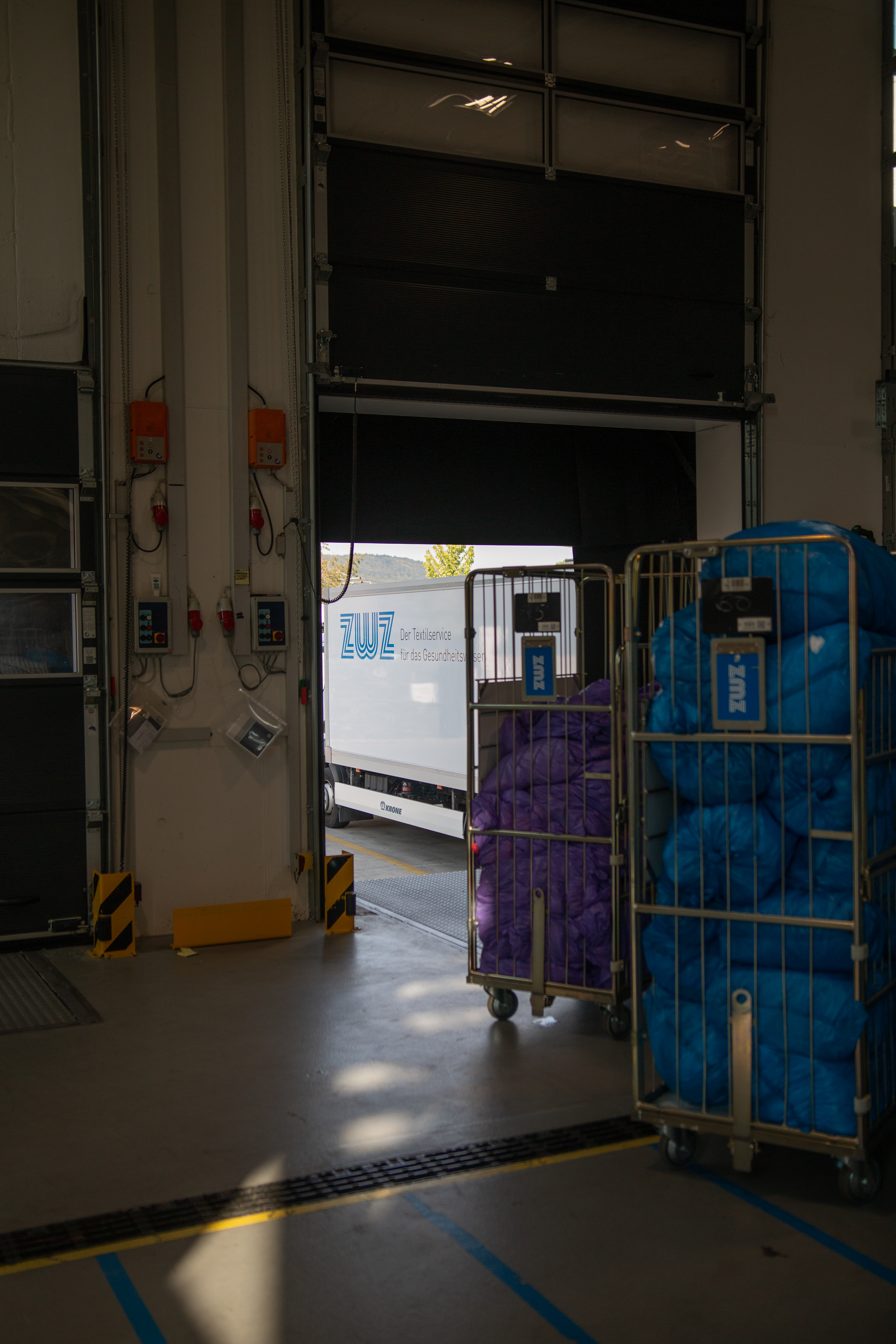
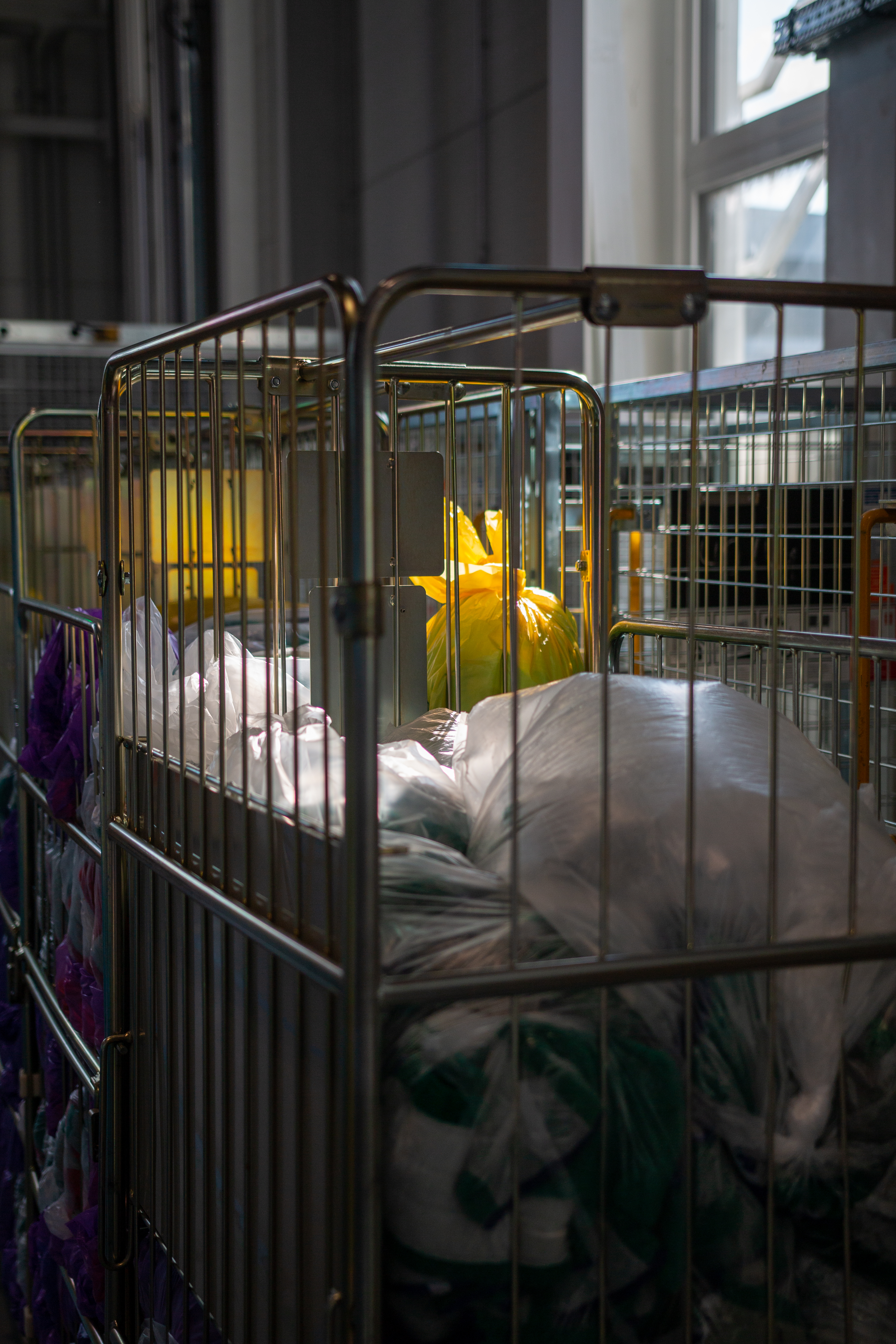
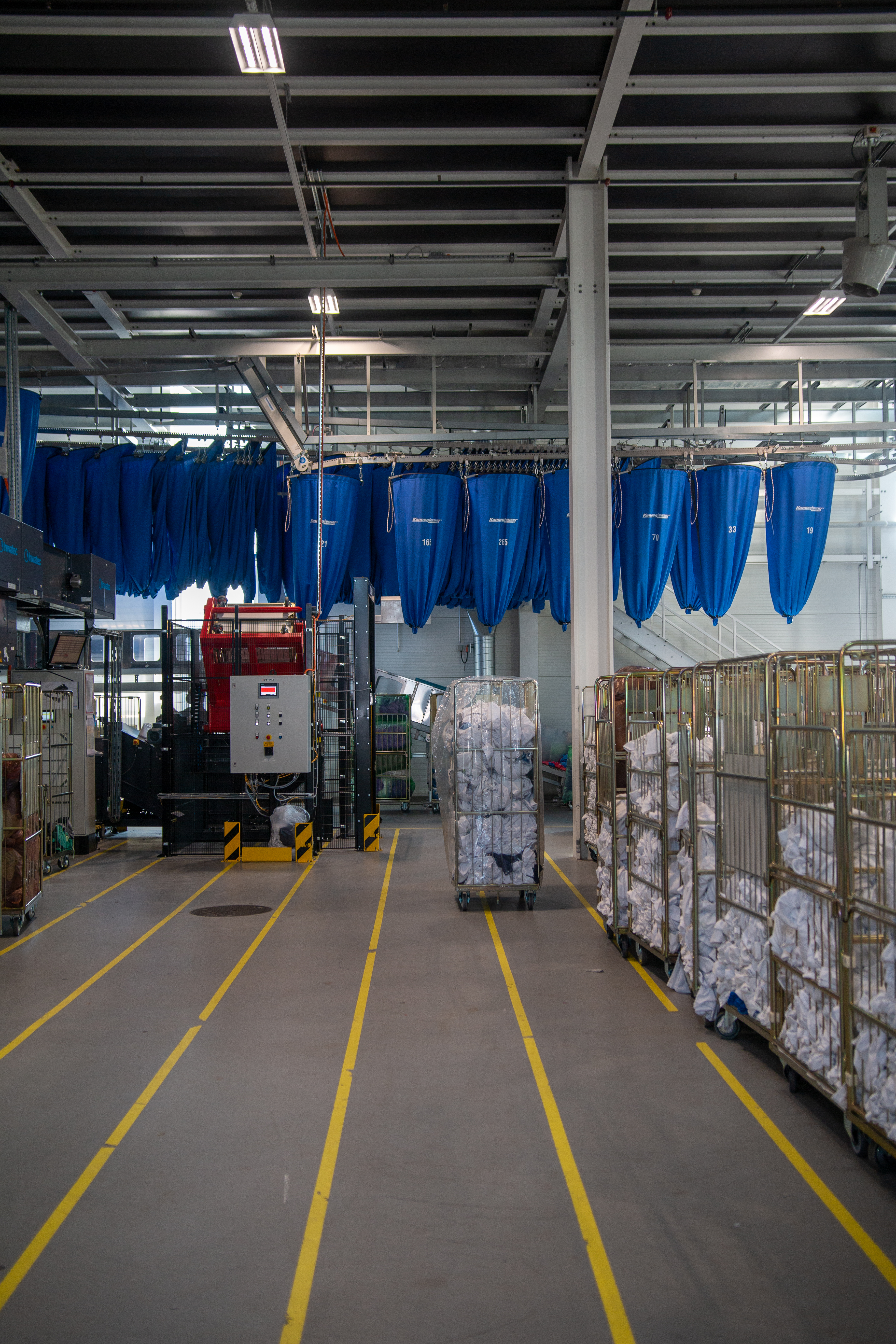

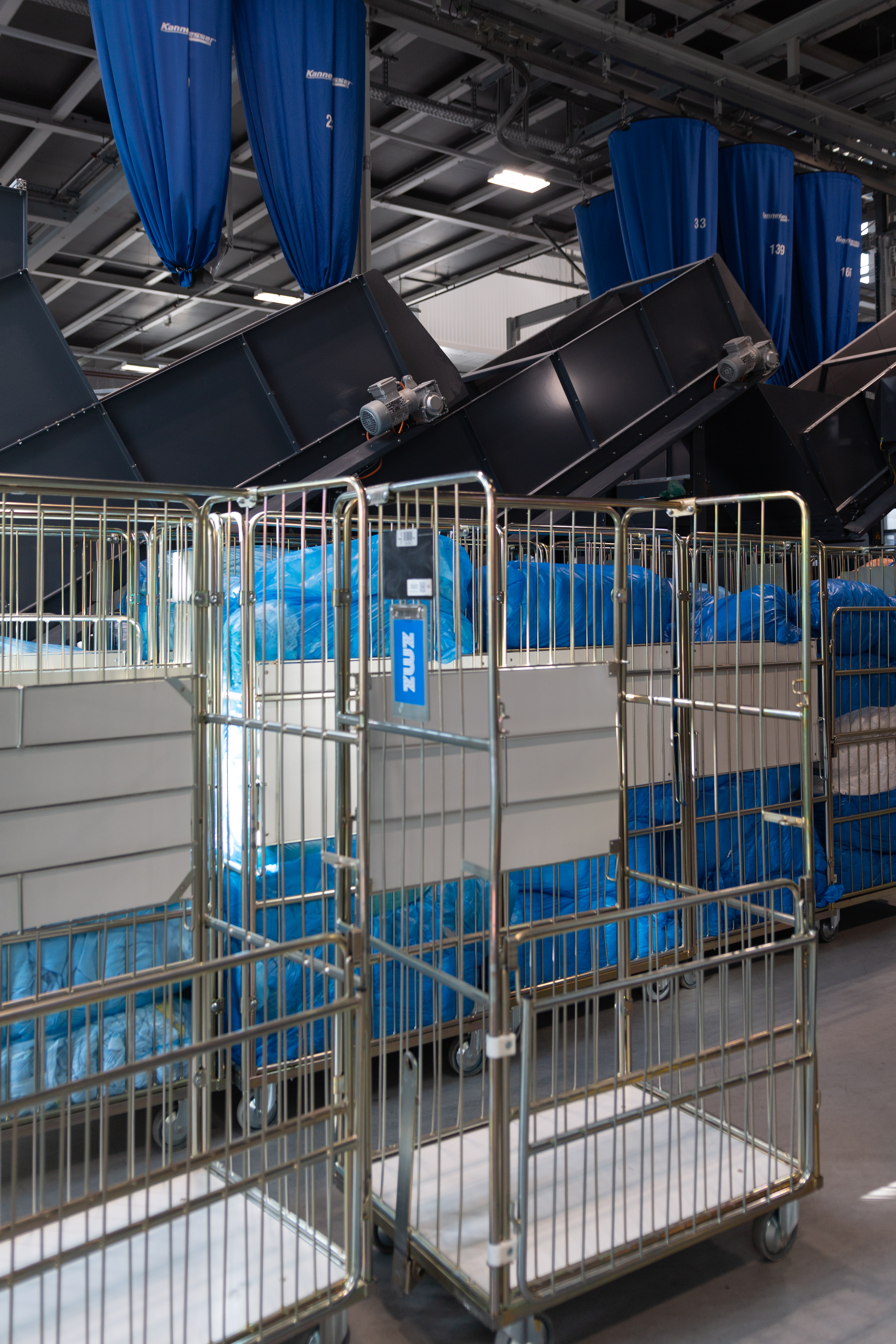
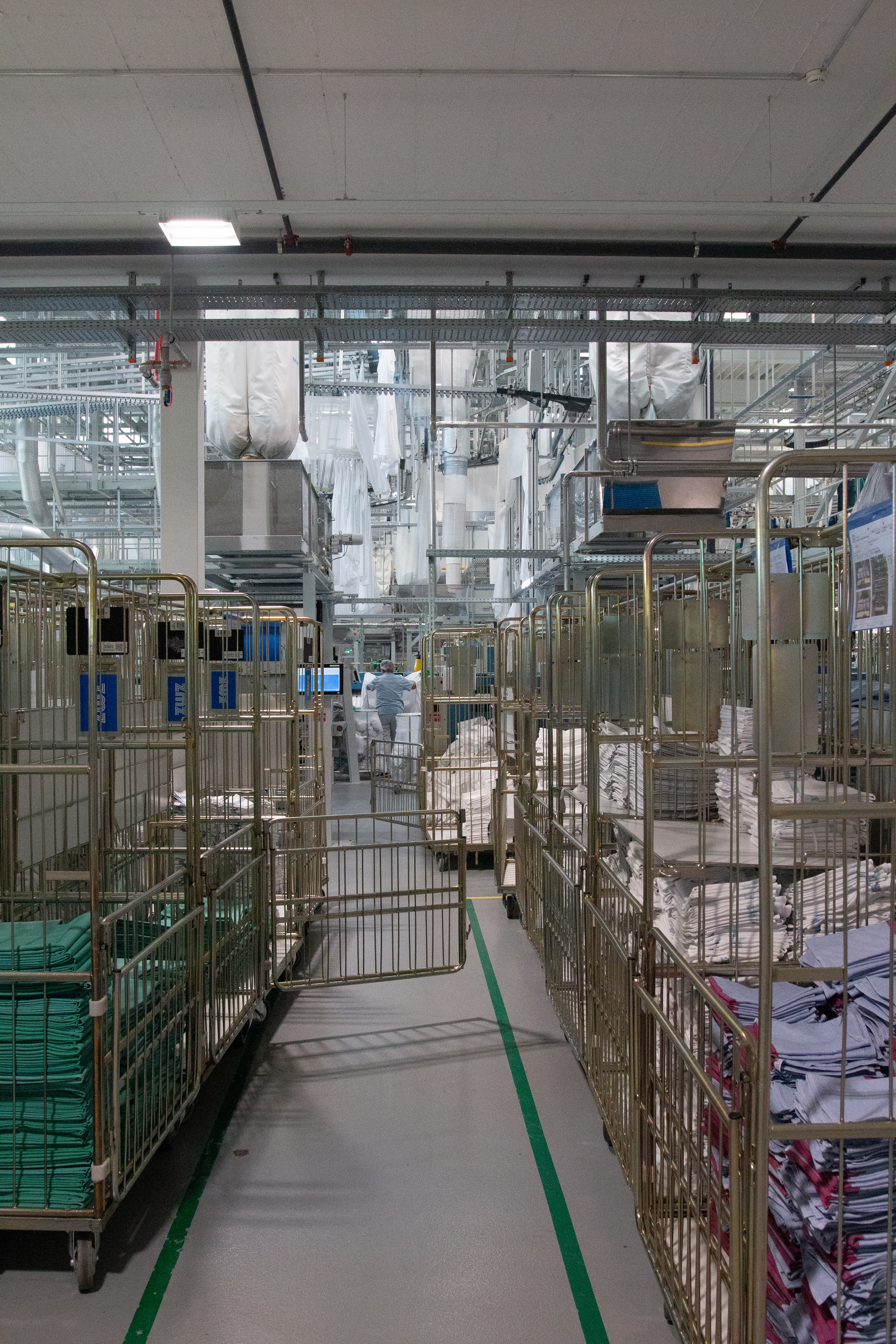

own source ©
